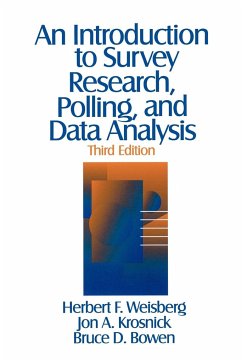
Analyzing Complex Survey Data
Versandkostenfrei!
Versandfertig in 1-2 Wochen
43,99 €
inkl. MwSt.

PAYBACK Punkte
22 °P sammeln!
This book examines ways to analyze complex surveys, and focuses on the problems of weights and design effects. This new edition incorporates recent practice of analyzing complex survey data, introduces the new analytic approach for categorical data analysis (logistic regression), reviews new software and provides an introduction to the model-based analysis that can be useful analyzing well-designed, relatively small-scale social surveys.














